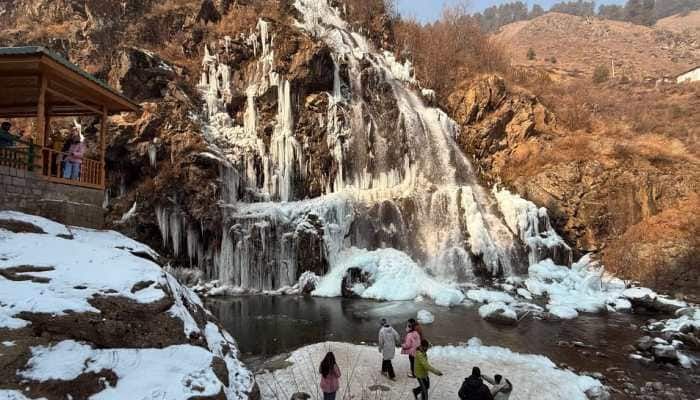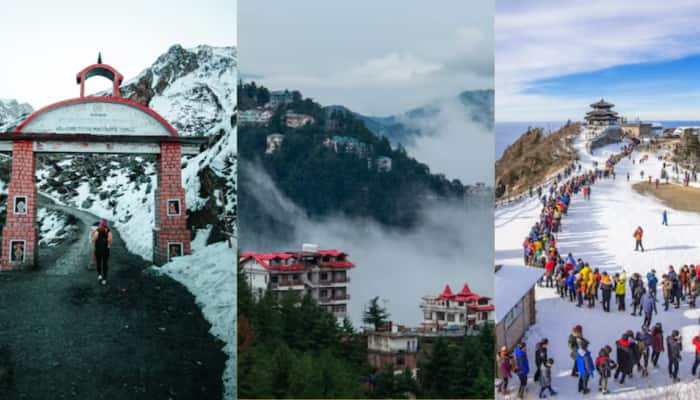China increases surveillance on Indian Army's central sector amid border tension along LAC: Intelligence report
Amid its border tension with India, China has increased its surveillance on the central sector of the Indian Army, according to intelligence report on Thursday.
- In a bid to monitor the movement of the Indian Army, China has upgraded its surveillance system as it realised that the strength of India shouldn't be underestimated.
- Amid its border tension with India, China has increased its surveillance on the central sector of the Indian Army, according to intelligence report on Thursday.
- The border tension between India and China escalated on June 15 when 20 Indian Army personnel were martyred after violent clashes with Chinese troops along the LAC.
Trending Photos
)
In a bid to monitor the movement of the Indian Army, China has upgraded its surveillance system as it realised, after the violent clashes along the Line of Actual Control (LAC) in Galwan Valley of eastern Ladakh, that the strength of India shouldn't be underestimated. Amid its border tension with India, China has increased its surveillance on the central sector of the Indian Army, according to intelligence report on Thursday.
The border tension between India and China escalated on June 15 when 20 Indian Army personnel were martyred after violent clashes with Chinese troops along the Line of Actual Control (LAC) in Galwan Valley of eastern Ladakh.
China has upgraded its surveillance system on the other side of Tun-Jun-La near Barahoti in Uttarakhand's Chamoli district. India's border is till Tun-jun-la, three kilometres ahead of Barahoti. During the current tensions between India and China, China upgraded its surveillance devices across the LAC.
According to the report, China has installed two cameras rotating up to 180 degrees near the LAC. It has also installed several kinds of poles in that area. China has also built a large solar panel and a windmill in the area.
A small hut has been built in the area where different types of construction materials have also been kept, including surveillance. A surveillance system was installed in Tun Jun La (Barahoti) in September 2019 which was upgraded in June. This system and camera have been positioned in such a way that the PLA of China can keep an eye on the entire area of Barahoti.
Meanwhile, India is working on making a new road from Manali to Leh, which will provide the third link between the high altitude mountainous Union Territory (UT) and the rest of the country, in an effort to rush troops and tanks to the Pakistan and China front in Ladakh without being observed by the enemy, according to news agency PTI.
India is also working on providing alternative connectivity to the strategically important Sub-Sector North including the Daulat Beg Oldi and other areas there for the last three years and work has already started from the world`s highest motorable road Khardung La pass.
"Agencies are working to provide alternative connectivity from Manali to Leh through Nimu-Padam-Darcha axis which will help in saving a lot of time in comparison with the existing routes passing through Zojila pass from Srinagar and the other route from Manali to Leh through Sarchu," government sources told PTI.
The road will save almost three to four hours journey time while travelling from Manali to Leh and will also not leave any scope for the Pakistanis or other adversaries to monitor the movement of the Indian Army while deploying troops and heavy weaponry like tanks and artillery guns to the Ladakh area from other locations, they said.
The route mainly used for transportation of goods and men is the one from Zojila, which passes through Drass-Kargil axis to Leh. The same route was targeted heavily by the Pakistanis during the Kargil war in 1999 and was subjected to frequent bombarding and shelling by their troops from positions in high altitude mountains alongside the road.
Sources said the work has already started on this project and the new road will connect Manali with Leh near Nimu where Prime Minister Narendra Modi had recently visited during the ongoing conflict with China.
Likewise, to provide alternatives to the strategic Durbuk-Shyok-Daulat Beg Oldi road, India is working on further developing the old summer route on which caravans used to reach eastern Ladakh areas from the western side.
The new road will travel from Leh towards Khardungla and then move through glaciers including the Sasoma-Saser La-Shyok and Daulat Beg Oldi axis.
Senior sources said that the 14 Corps was given the responsibility of finding an alternative to the DSDBO road and check the road coming from near the Siachen camp towards the DBO area, and one unit was sent through there on a trial basis.
The Army unit travelled from Sasoma to Saser La in vehicles and the rest of the area on foot, on the route which is full of bones of double-humped camels which were used to ferry cargo, through the very rough Shyok river during the summers. The new route was earlier used by the Army also to maintain the Sub Sector North.
Stay informed on all the latest news, real-time breaking news updates, and follow all the important headlines in india news and world News on Zee News.
Live Tv







)
)
)
)
)
)
)
)
)
)
